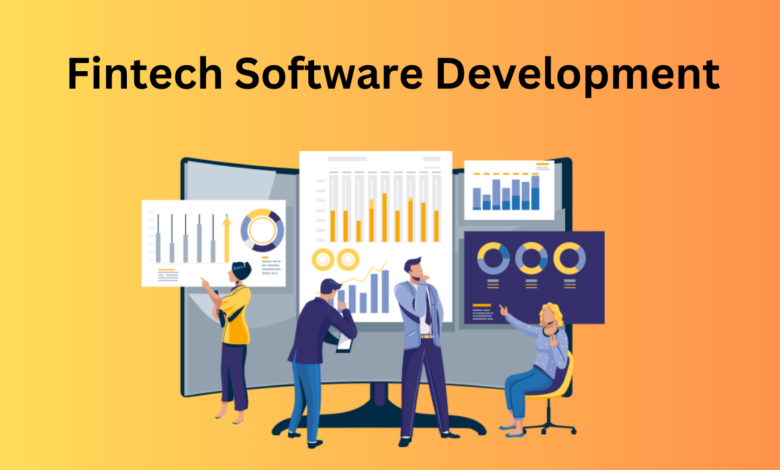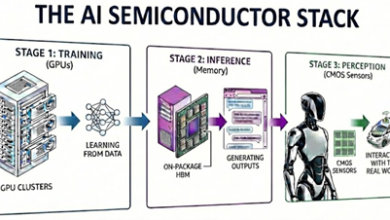
Financial technology (Fintech) is revolutionizing the way individuals and businesses manage money, make transactions, and access financial services. From mobile banking apps to cryptocurrency platforms, fintech software has created new opportunities for financial institutions and startups.
With innovations such as artificial intelligence (AI), blockchain, and big data analytics, fintech software development ensures faster transactions, enhanced security, and improved user experience. Businesses that invest in fintech solutions can streamline operations, increase customer trust, and stay ahead in the competitive financial market.
What is Fintech Software Development?
Fintech software development involves building digital solutions that enable secure and efficient financial transactions. These solutions range from mobile payment apps and digital wallets to AI-powered trading platforms and blockchain-based smart contracts.
Fintech applications cater to different financial sectors, including banking, insurance, investments, and personal finance management. They must adhere to strict security and compliance regulations to prevent fraud and ensure data protection.
Why Fintech Solutions Are Transforming the Financial Industry
The traditional financial industry relies on outdated processes, leading to delays, inefficiencies, and high operational costs. Fintech solutions automate banking services, reduce paperwork, and enable real-time transactions.
With AI-driven analytics, fintech software provides users with personalized financial insights, fraud detection, and risk assessments. Additionally, blockchain technology enhances transparency by securing transactions on decentralized ledgers, and eliminating intermediaries.
Types of Fintech Software Solutions
1. Digital Payment Systems
Mobile payment apps, e-wallets, and peer-to-peer (P2P) payment platforms facilitate seamless online transactions. Examples: PayPal, Stripe, Apple Pay.
2. Banking and Core Financial Software
Fintech solutions for banks streamline loan processing, customer management, and fraud detection. Examples: Digital banking apps, core banking systems.
3. Cryptocurrency and Blockchain Solutions
Blockchain-based fintech software enables secure cryptocurrency trading, decentralized finance (DeFi), and smart contract execution. Examples: Coinbase, Binance, Ethereum.
4. Personal Finance and Budgeting Apps
These apps help users track expenses, set financial goals, and manage personal finances. Examples: Mint, YNAB, PocketGuard.
5. Investment and Trading Platforms
AI-powered trading apps provide users with real-time market insights and automated trading strategies. Examples: Robinhood, eToro, Wealthfront.
Key Benefits of Fintech Software Development
1. Enhanced Security and Fraud Prevention
Fintech software implements multi-factor authentication (MFA), AI-driven fraud detection, and blockchain encryption to secure transactions.
2. Seamless Digital Transactions
Mobile wallets and online banking apps enable instant payments, reducing processing delays in financial transactions.
3. AI-Powered Financial Insights
AI-driven fintech apps analyze user spending habits, predict financial trends, and provide real-time investment recommendations.
4. Cost Reduction and Operational Efficiency
By automating loan approvals, credit scoring, and claims processing, fintech software reduces manual work and operational costs.
6 Easy Steps to Develop Fintech Software
1. Define Business Goals and Regulatory Requirements
Start by identifying your fintech solution’s objectives, target audience, and key functionalities. Ensure compliance with financial regulations such as GDPR, PCI-DSS, AML, and KYC to protect user data and prevent fraud. Understanding these requirements early helps avoid legal and operational risks.
2. Choose the Right Technology Stack
Select technologies based on scalability, security, and integration needs. Common choices include AI for fraud detection, blockchain for secure transactions, cloud computing for scalability, and APIs for seamless banking integration. A well-chosen stack ensures smooth performance and long-term sustainability.
3. Implement Advanced Security Protocols
Security is a top priority in fintech applications. Implement multi-factor authentication (MFA), end-to-end encryption, AI-driven fraud detection, and real-time monitoring to prevent cyber threats. Adhering to industry security standards ensures data integrity and user trust.
4. Develop User-Friendly UI/UX
A seamless and intuitive design enhances customer experience. Focus on simple navigation, responsive dashboards, real-time financial insights, and accessibility features. A clean UI improves engagement and helps users make informed financial decisions easily.
5. Integrate APIs for Seamless Transactions
APIs enable smooth interactions with payment gateways, banking services, and third-party financial platforms. Secure API integrations help automate transactions, streamline data exchange, and enhance the overall functionality of your fintech software.
6. Test, Deploy, and Ensure Compliance
Before launching, conduct rigorous testing, including security audits, stress testing, and real-time transaction simulations. Ensure compliance with industry regulations to avoid legal issues. After deployment, monitor performance continuously and optimize for security and efficiency.
How Moon Technolabs Can Help You Build a Secure and Scalable Fintech Solution
Fintech software development requires expertise in blockchain, AI, cybersecurity, and financial regulations. Moon Technolabs, a leading fintech software development company, specializes in building secure, scalable, and innovative financial applications.
With deep expertise in digital payments, banking solutions, and cryptocurrency trading platforms, Moon Technolabs ensures seamless transactions, regulatory compliance, and high-performance applications. Whether you need a personal finance app, AI-driven trading platform, or DeFi solution, their team delivers cutting-edge fintech software tailored to your business needs.
Conclusion
Fintech software development is transforming financial services by enabling secure, fast, and AI-driven financial transactions. From digital banking and mobile payments to blockchain-based investments, fintech solutions provide businesses and consumers with unmatched convenience and security.
For companies looking to develop fintech applications, Moon Technolabs offers expert fintech software development services that ensure compliance, security, and scalability. As the fintech landscape evolves, businesses that embrace digital transformation will lead the financial industry forward.
FAQs
1. How much does it cost to develop fintech software?
The cost varies based on features, security requirements, and compliance, typically ranging from $50,000 to $500,000+.
2. What technologies are used in fintech development?
AI, blockchain, cloud computing, big data analytics, and secure API integrations power modern fintech applications.
3. How does AI improve fintech solutions?
AI enhances fraud detection, risk assessment, trading algorithms, and personalized financial insights.
4. What are the biggest security risks in fintech?
Common risks include data breaches, cyber fraud, regulatory non-compliance, and identity theft.
5. What is the future of fintech software development?
The future includes AI-powered robo-advisors, decentralized finance (DeFi), blockchain smart contracts, and biometric payments.


